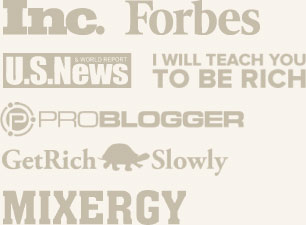To Free or Not to Free?

Should you offer your next product for free? So, you have spent time developing a product (or you are currently in the process of creating one.) One of the major questions you will have is: How do you price your product? Should you price it low, go for the high end…or should you offer it for free?
There are good arguments on both sides of the debate about whether to offer your next product for free; here, I will walk you through them. By the time you finish reading this post, you should easily be able to decide whether your next product should be a free one.
Let’s start with an example: I was listening recently to the Personal Finance Hour with J.D. Roth, owner of the popular blog Get Rich Slowly. He mentioned that he planned to do a series of blog posts and then turn them into an ebook. Almost as an afterthought, he added, “I think I’m going to offer [the ebook] for free.”
Offering a product to the world that you’ve put a significant amount of effort into will return one of two things back to you: reputation or money. What you’re interested in receiving at this time should determine whether you decide to offer your next product for free or as a paid product.
The Case for Free/Reputation
If you are new to an industry, offering a high-quality product for free will immediately establish you as a force to be reckoned with. Reciprocity will kick in, and others will promote it (and you!) via social media and linking. Hundreds or thousands of people will visit and download your product. Some of these people will be influencers; they will write about your product on their blogs, Tweet about it, or email it to all of their friends.
Offering a targeted product for free (such as my Blog Success Manifesto, which is targeted toward bloggers) will help you grow a devoted following of people in your niche. Surveying those on your email list will help you quickly create paid products in your niche; you will have a ready-built audience to sell those products to. If you’re a consultant, for instance, offering a high-quality, free product helping your target audience will enable you to quickly reach people who will pay money for your consulting work.
Whether you choose to write a blog, develop an information product, or develop a standalone product such as a piece of software or a mobile phone application, free will help you build loyalty, trust, and a following.
The Case for Paid/Money
Paid products won’t spread the word about you very quickly. In fact, most people who will promote your paid product will want a cut of the sales–they will want to become affiliates. However, if you have already established yourself as an authority in your industry, I would recommend releasing a line of paid products.
Let’s use J.D. as an example. His blog, Get Rich Slowly, currently has over 69,000 subscribers. It’s safe to assume 1-3% of your audience will buy a paid product you produce. (That number may be higher if you promote it well and it’s a lower-priced product.) Let’s use 3% as the number for J.D., and $17 as the price point for his ebook. 3% of his subscribers means 2,070 sales. At $17 each, that’s over $35,000 in gross revenue. That’s not including additional revenue from new subscribers who buy his product in the future, or a percentage of the revenue from affiliates who promote his product on their own sites.
Of course, having a paid product means you will have to deal with the occasional refund or “Help, I can’t download the file” email–or hire someone to do so. But I’d argue that when the numbers look like they do above, that’s a worthwhile expense. You can outsource this cheaply; spend your time on product creation instead.
Which Should You Choose?
If you are struggling with how price your product, answer this question: Do you need to build a reputation in your industry, or do you want to cash in your earned reputation points?
With my Blog Success Manifesto, I decided I’d rather give up $2,040 in gross revenue (3% of 4000 subscribers at $17 each) and instead build my reputation by providing a quality product at no charge. That was worth it for me; already, over 400 new subscribers have downloaded my Blog Success Manifesto. Since I plan to market products in the future to bloggers, I don’t regret my decision.
But when you’ve already built a huge reputation for delivering quality products, and you’re well-known in your niche, don’t hesitate to cash in your chips. Were I in J.D.’s situation, I would sell the ebook. I would then set a goal of developing a new, related product in my niche every 2-3 months and selling that, as well. Doing that would not only exponentially increase my income (thus affording me new opportunities), but it would allow me to hire someone and feel amazing that I was able to help feed an individual or family due to my creative products.
You Know You’re In the Wrong Place When…
If you’re too far into the “reputation” side of things, you’ll feel it. You’ll be burned out about money and frustrated that no one seems to value your time. In reality, you’re the one not valuing your time by offering products that your audience could benefit from.
In fact, your audience may be begging you to offer paid products. Many times, you will get emails from people you don’t even know, asking “Your ___ is fantastic! How can I help you?” This is a good sign; it means it’s time to take that leap and start turning in your reputation chips for cash.
If you’re too far into the “cash money” side of things, you will also feel it. You’ll be demoralized by the fact that everyone seems to “want a piece of you.” You won’t be able to find many people to promote your product without wanting some of the action.
Try offering some of your best work for free…not the castoffs, but your most original products. Use blogs and social media to build your reputation and your list. Once you’ve built a reputation for offering amazing products at no charge, try selling another product. You will be surprised at the different reaction you get!
A Word of Warning
Building a reputation takes time. Don’t expect to write a document in half an hour, offer it for free, and then immediately cash in your reputation points. If you need quick cash, promote others’ products as an affiliate while continuing to offer excellent work for free. Listening to your audience will help you gauge when the time is right to offer your first paid product.
Treat your reputation like gold. Offer products with integrity and confidence, and enjoy the fruits of building your reputation!
Recommended Reading:
- Is Your Tribe Holding You Down? Sonia Simone at Copyblogger examines who has it better: the broke “cool kids” or the money-driven Internet marketers. The two tribes parallel this post. A must-read.
- Blog Success Manifesto. If you’re a blogger, or want to become one, this is imperative. My 62-page guide that shows you step by step how to use a blog to build your reputation.
- 5 Mid-Year, Game-Changing Questions by Pam Slim. Pam and several others are exploring new ways of doing business online by building your reputation; her article goes along well with this one.


